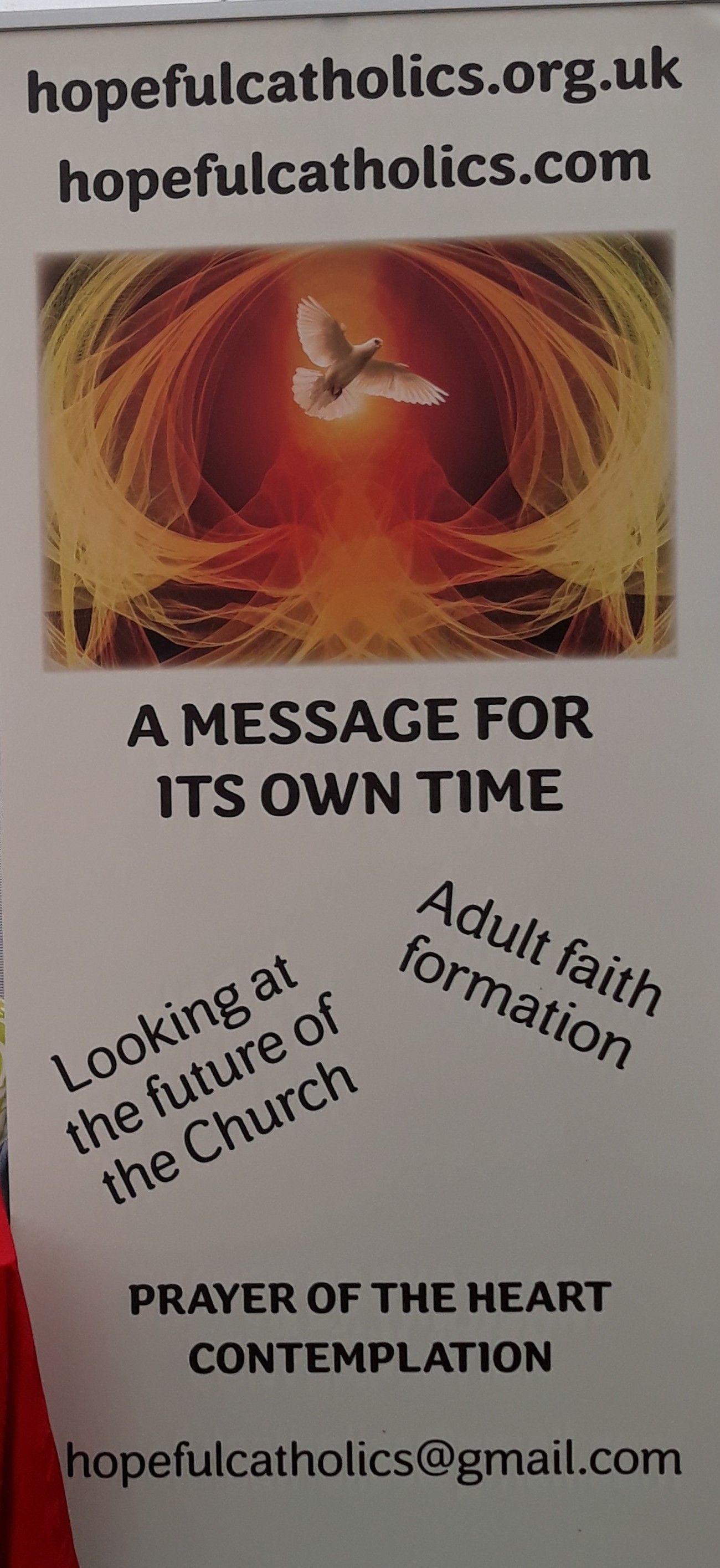Latest News
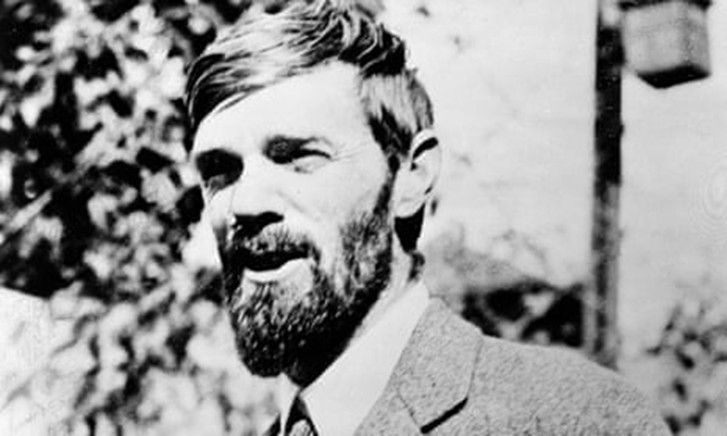
D. H Lawrence has a glimmer of gods and Kings. Did not Jesus quote psalm 82:6, which says 'You are gods; you are all children of the Most High'? (John 10: 34) One night I was reading some poems of D. H. Lawrence. One was entitled “The Gods! The Gods!”. It reads: People were bathing and posturing themselves on the beach, and all was dreary, great robot limbs, robot breasts, robot voices, robot even the gay umbrellas. But a woman, shy and alone, was washing herself under a tap and the glimmer of the presence of the gods was like lilies, and like water-lilies. The poet is suddenly overwhelmed by the splendour of another person. Sometimes we experience that, but such moments are all too rare in life. But when we enter the eternal dimension of Heaven we will behold each other’s splendour. In another poem Lawrence is in Sicily and goes to the well to draw water. He sees that a venomous snake is there before him and he watches it. Twice it raises its head and turns an imperious regard to him. He is torn between fascination and the inherited instinct to kill it. He heaves a branch at it and it speeds away. He goes on: And I wished he would come back, my snake. For he seemed to me again like a king, Like a king in exile, uncrowned in the underworld, Now due to be crowned again. And so, I missed my chance with one of the lords Of life. Isn’t that true of each person God has made; ‘a king in exile, uncrowned in the underworld, now due to be crowned again’? Don’t we all hope to hear Jesus speak these words to us: “Come blessed of my Father. Take for your inheritance the kingdom prepared for you from the beginning of the world” (Matthew 25, 34). And shouldn’t we bow down in front of the mystery of the enormous grandeur each of us is being led into? And pray for those who are on the final growth to glory, the Souls in Purgatory?
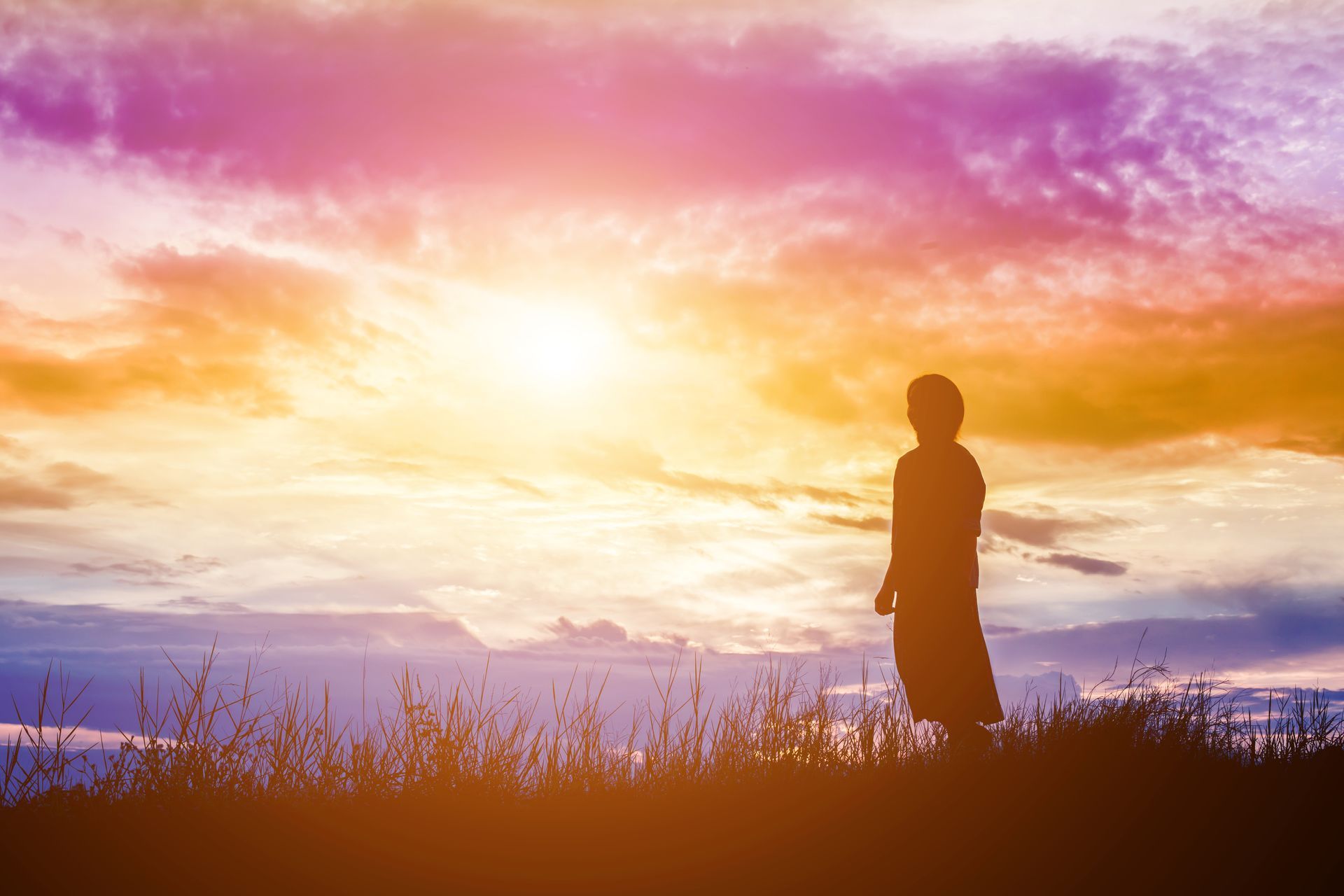
For years I have heard spiritual guides saying that it is our wills that are crucial in the prayer of the heart. I have to admit that I have found it difficult to make sense of this, because it sounds like muscular Christianity which I have found inadequate. I imbibed a strong moralising religion as a child, which meant learning what was right and willing myself to do it – this was especially reinforced by the image of a fearsome God who was keeping the score. The result was a sense of failure combined with frequent resolutions to do better. I know that was not true religion, which is about relating to the God who is love. What I was practicing was a throwback to Old Testament keeping of the law. I think that is what Jesus was talking about when he described John the Baptist as the greatest man born of woman, but added ‘yet the least in the kingdom of heaven is greater than he is’ . He said: ‘Since John the Baptist came, up to this present time, the kingdom of heaven has been subjected to violence and the violent are taking it by storm’ . (Matthew 11, 11). Muscular Christianity with its stress on will power uses violence against self and even against others to take the kingdom of heaven by storm. So why do the greatest spiritual guides keep saying that the will is central? A clue lies in The Catechism of the Catholic Church’s chapter on prayer (2563). The explanation begins with the heart: “The heart is the dwelling-place where I live. According to the Semitic (Jewish) or Biblical expression, the heart is the place ‘to which I withdraw.’ The heart is our hidden centre, beyond the grasp of our reason and of other people; only the Spirit of God can fathom the human heart and know it fully.” The Catechism’s explanation then shifts the focuses to the heart’s movement and actions beyond itself: “The heart if the place of decision , deeper than our psychic drives. It is the place of truth, where we choose life or death. It is the place of encounter, because as images of God we live through relationship: it is the place of covenant” (my underlining). I find the words ‘decision’ and ‘choose’ more helpful than ‘will’. As I spend time in silent prayer seeking the face of God, with the conscious attempt to love him and be loved by him, it is the constant renewing of the decision and choice which gradually solidifies an attitude of love in my heart. Much of the time, there is no feeling or understanding of this living relationship, but, as time goes on, I am aware that that relationship is an attitude developing in my heart. That awareness rises up from my heart to my mind more and more throughout the day and night. It is like a catch of a tune springing up in the mind. But the word ‘will’ or 'will power' certainly describes the strength needed when there is temptation. I find that it is easy to resist temptation when I am aware of the Father’s love and Jesus’ closeness. It is when these are obscured that my will must operate most strongly. Usually it is not a matter of willing to do something, but rather a tenacious clinging on in the dark to the hand of God. That takes grit, in which I am often lacking, but as the relationship grows I expect my will to grow stronger. We might ask: what does temptation have to do with contemplation? Temptation is never far away from one who contemplates. The Evil One knows only too well what power for good flows from the lovers of God. He hates contemplation and tries to disrupt it whenever he can. Thankfully, God shields his lovers much of the time, but at others he permits us to be tempted. It is not that he is abandoning us then, but he is turning the Devils weapons back on his own head. Each time we overcome temptation with the help of God's grace, not only does the Devil weaken, but also our own inner self grows stronger. It is in that struggle, that we are tested and purified like gold in a furnace. When undergoing temptation it is important to remember four basic Catholic teachings. God will never allow us to be tempted beyond our strength. But often we will not appreciate what strength we have with the aid of God's grace until after struggle is over. All temptations eventually pass. Temptation is not sin. Sin is where we willingly indulge a temptation and welcome it into our souls. Then it restricts our capacity to experience God's love. In that state of deprivation we allow evil to become stronger in ourselves and the whole world. Temptations arise from virtues that are wounded and twisted. Anger, for instance, is a God-given power of our soul to remove evil with extraordinary force. When anger is diseased, that force is used to harm and hurt. The saints and spiritual teachers mean something much deeper than 'will power' when they are dealing with our wills. We shall consider that in Chapter 12. QUESTION How are you finding my thoughts on the prayer of the heart/contemplation? I am sure I only see a small part of this deepest activity of our spirit. Would you care to add something of your own thoughts and experience? Use the 'comment on this article' button below.
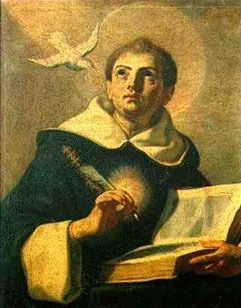
PANGE LINGUA In 1264, in response to growing demands, Pope Urban IV instituted the feast of the Sacrament of the Body and Blood of Christ, Corpus Christi. He asked St Thomas Aquinas , one of the greatest thinkers that the Church has ever produced, to compose hymns to be sung on the feast. Today we still wonder at the gift of poetry that he displayed. Among his hymns was ‘Ecce Panis Angelorum’ and ‘Pange Lingua’ which most of us are familiar with. If you do not know the Pange Lingua, you will probably know its last two verses, the Tantum Ergo, sung at Benediction. On this great feast of Corpus Christi, I take the liberty of offering my own translation of the Pange Lingua. Oh tongue of mine, sing of the Mystery of the glorious body and precious blood. This is the price paid to redeem the world. which the King pours it out upon the peoples from his generous breast, He was given to us, born to us from the immaculate Virgin. And, after living in our world and scattering the seed of his word, he climaxed his dwelling among us in this amazing way. In that greatest of suppers, celebrating with his friends, after they had eaten the Passover meal as laid down by the Old Law, from his own hands he gave himself as food to his twelve companions. The Word took our flesh; now he turns actual bread into his flesh. And (wine) is transformed into his actual blood. If our senses cannot perceive (the great Mystery), Sincere hearts are assured of it by the light of faith. Let your eyes gaze with wonder at this holy revelation of God. The Old Covenant with God is completed by this new intimacy. Let your faith perceive what your senses can not. Praise the Father, the Son and the Spirit! Do it with overflowing joy, and be blessed!
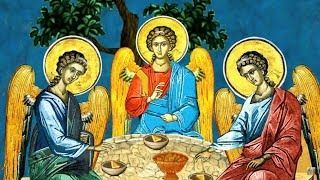
OH, THE RICHNESS!!! If you blink, you could miss some of the treasure poured out into our laps at this time. First, we are nearing the end of the Easter Season. Like Christmas, it is all too short. Personally, I am just getting into re-examining the Resurrection of Jesus – it is ending too soon! In recent years I have found myself concentrating on his passion and death, the central drama of human history, in which he fought and conquered evil. I have found such richness in the acclamation, “We proclaim his death”. I see my valiant and all-loving saviour routing, in his suffering heart, mind and body, the forces which entangle me and my world. What love! What courage! What hope! But this year it is the resurrection which is stunning me. I have been thinking a lot about the aversion of our modern minds to the whole idea of miracles. Mathematics and science base themselves on strict and unchanging laws in nature. Many philosophers today say that what seems to us to be a miracle will eventually be explained by the discovery of natural forces that we are presently unaware of. They say, if there is a God, he is primarily the law-giver, and therefore he is incapable of changing the laws that he has made. Even among ‘Christians’, there are some who say that one day we will discover the bones of Jesus somewhere in Palestine. But God is not primarily the law-giver. He is the Father who is the delight of his children. He can never be put into a box of human definition and will always surprise us. Through miraculous glimpses and disciplined formation he is re-forming us into his own likeness. On Easter morning, his Son really revived his own body as it slept in death. He not only came back to life he pulsated with the glorious new life of the new creation. I can’t get to the bottom of that – I need more time! Second, Pentecost comes quickly. There was such a supernatural commotion in Jerusalem that thousands of people flocked to the scene. What they saw was some deliriously joyful men celebrating with a big ' C' . The Holy Spirit of God, released into the world at Easter was bringing the Church to life. The Apostles are inspired, there was the miracle of everyone understanding them in their own language, and 3000 were baptised that day. I feel like spending more time here to think about God’s Spirit forming mankind into Church, bringing about the new creation here and now. I feel we only get time to remember what happened at the first Pentecost, and then are moved quickly on by the liturgy. But isn’t that desire to enter more into Pentecost as it is happening here and now precisely the work of ‘Ordinary Time’? Oh, I hope so. Third, we move onto Trinity The diet of the Liturgy seems too rich. God needed 2000 years to reveal to Israel the Mystery of the amazing love life of the three persons who are united as one God. There is no truth more deep or important. How can we just give it a day in the Liturgy? But that very deepest reality, Trinity, is what every single day is about not just Trinity Sunday. It is where we have come from, where we are now and where we are going. It is the reality in which we “live and move and have our being” (Acts 17: 28). Every day is meant to be a new stage in our exploration into the reality of our God-filled existence. A large part of the Liturgy, the big feasts, is revisiting the events of salvation, and reliving them to receive their message and know afresh the power of God. But an equally large part is just being in God and learning reality under his mighty hand. We do that by letting the Holy Spirit give us encounters with Jesus, who gradually incorporates us into himself and takes us to our Father. That is Trinity life here and now. Suddenly it’s Corpus Christi In the last paragraph I said that Jesus ‘incorporates’ us into himself in order to take us to our Father. What a surpassing mystery that he should actually do this physically when we eat his body and drink his blood! The Eucharist is the daily bread of Christians, the food for the journey. We call our last reception ‘Holy Viaticum’, the Latin for ‘food for the journey’. In that case the journey is from this world to the fully real world of the Trinity, where there will be no more days, only the eternal now, which we cannot even imagine. We only know it is eternal bliss and beautiful complete communion. The Mass is that point when millions of Christians throughout the world gather as one with all the saints of heaven and are given a foretaste of that glory which is to come. In its strength, we go out to fulfil the next stage of our task of drawing all creation into Jesus’ new life. Through repetition we learn. The great feasts we celebrate so closely together at this time, are like the headlines in a newspaper, which we scan, and later return to in order to familiarise ourselves with the details. They highlight in dazzling dramas, the everyday drama of ordinary life in Christ. It says a lot for God’s understanding of us that we spend year after year relearning so that day by day we can live more fully.
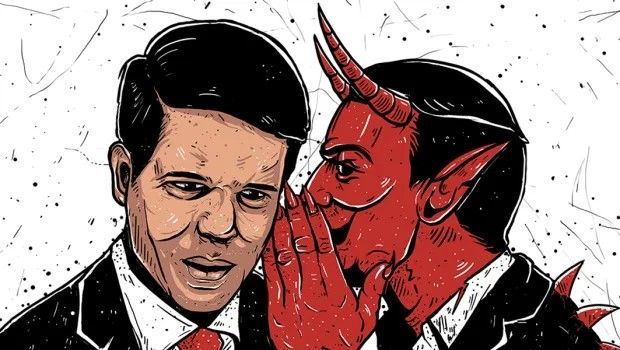
WHERE DOES EVIL COME FROM? The argument from reason that there is a good God. One of the great arguments for the existence of God is the way the world is so perfectly designed. Such detail and harmony working in such incredible complexity, could not just have happened on its own. There has to be an amazing mind at work creating it. This argument will move many people to believe in God and many will seek to know him. Then it is not a matter of reasoning yourself into a conviction that there is a God, but of actually relating to him. The argument is called reason; the relationship is called faith. The argument from reason that there cannot be a good God. But reason will often object: ‘then why is there so much violence and evil?’ The only answer we can offer is not one from reason but from faith. Those of us who believe the scriptures know that an event took place soon after the creation of humanity, whereby human beings chose to know evil as well as good. Put simply, our faith teaches us that evil is not God’s doing but our own. Reason will often argue; ‘even though there are terribly evil human beings, evil is so enormous and so clever, that there must be a mind greater than any human mind behind it’. Our faith informs us that there is indeed a spiritual being so powerful that he is the origin of all evil. He, the Devil, was the one who tempted the first human beings to let in the hideous reality of evil. The father of lies The Devil suffers from such enormous self-absorption that he deceives himself into convincing himself that he is like God, and he actually tries to be God. In dreaming that he is absolute goodness, be cuts himself off from the only being who is absolute goodness, and he hates goodness and hates God. But just as darkness cannot put out even a little candle flame, but must flee before it. He flees from God and concentrates on trying to corrupt God’s beautiful creation where humanity gives glory to God. He wants to own us The Devil is incapable of creating anything – only God can do that. His mode of operating is to twist and wound things that are good. He turns loving into lust, zeal into violence and caution into craven fear. Just as a skilful magician distracts us while he performs his tricks, the Devil is the deceiver par excellence. His object is to lead human beings into hell. That is not primarily a place, but a condition of mind and spirit. The Devil has enormous power to put deceptive thoughts into our minds. When a person gives in to his subtle deceptions he or she violates truth and goodness in themselves. Once that takes hold, he manoeuvres in subtle ways to lead them to consent ever more deeply to their own brokenness. Thus the inner awareness that we are good is eroded until we are filled with such hatred of ourselves that we cannot stand it and direct our hatred outwards at the world and ultimately at God the source of all good. Then, although the person may sustain an attractive persona for a while, they are fundamentally absorbed by evil. That is hell on earth. Does the Devil really exist? Despite the manifold evidence of supernaturally organised evil, his favourite deception in our day is to convince us that he does not actually exist. That works for a while in the good times, but leads to us being caught from behind by the mounting experience of evil. He tries to tell us that all evil comes from human sickness and brokenness, which we can’t help. But no human being could really desire and plot the hideous institutionalising of senseless destruction which we hear of daily in the media. It is the Devil who is the great orchestrator. What is the remedy? It is simple. The Devil has no power to harm us if we are clothed in Christ. We must concentrate our hearts and mind on Jesus. Like drivers on a darkened road when powerful headlight are approaching, we keep our eyes on the white line at the side of the road which is the true way onwards. The dazzling lights which try to dominate our senses will always pass. They are nothing more than smoke and mirrors. We keep our focus on Jesus, the Lord of abundant life. There is a difference between denying that there is a Devil and cultivating a habit of ignoring him because we are focused on Christ. If a child has a tantrum because he has decided that he does not like carrots, it is good to ignore his screams and protests and just carry on enjoying tasty carrots until he discovers his strop isn’t working. He will soon give up. The Devil always withdraws in the face of peaceful faith. Jesus never withdraws. He is with us always until time has run its course and all is lifted up into the glory of God.
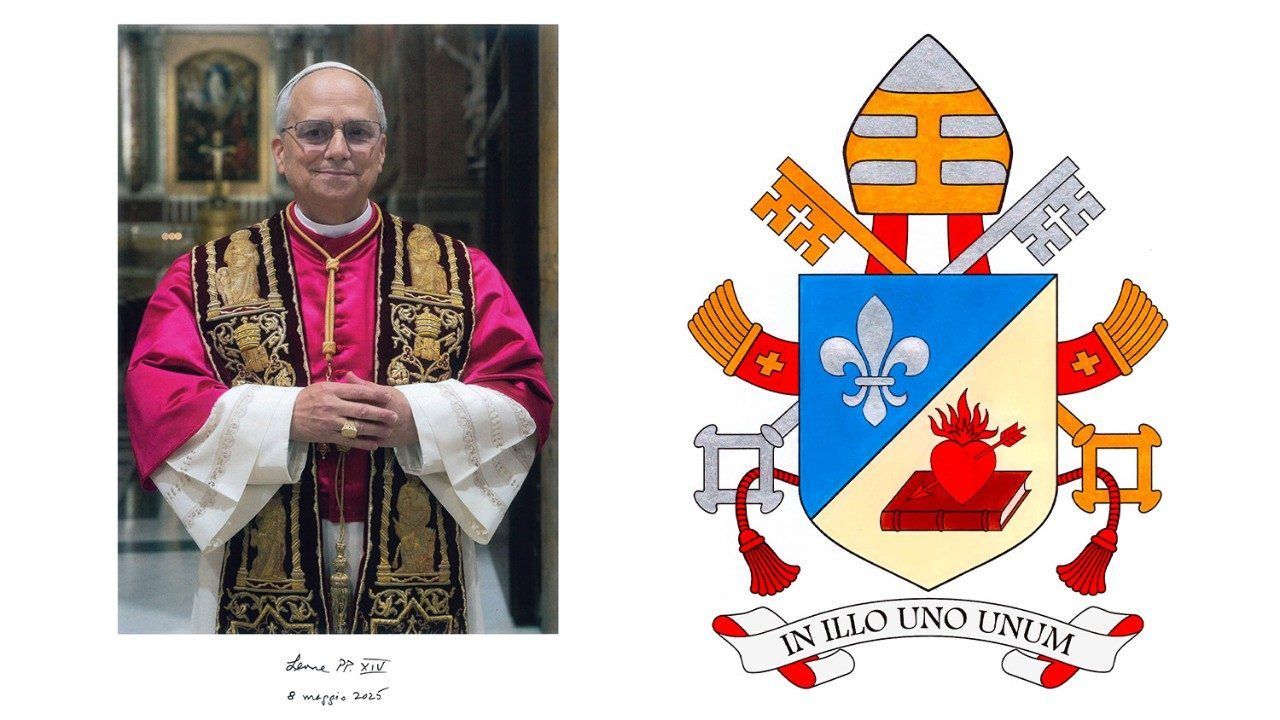
SAINTS PETER AND PAUL The Papacy Just a month ago the world was gripped by the Funeral of one of the greatest popes of all time, Francis, and the rapid procedure of electing his successor, Pope Leo XIV. It all took place on the spot where St Peter was crucified and buried. At the end of this month, we celebrate St Peter along with St Paul, the other great apostle who was beheaded about the same time and is buried nearby. It is as the successor of St Peter and the teacher of St Paul that the Bishops of Rome base their claim to primacy among all other bishops. Catholics, the majority of Christians, totally believe that, and many of the rest somehow acknowledge it. We know and feel the special charism that the papacy is to the Church – and the world somehow also feels and acknowledges it. Now the latest Pope has been given to us. His Coat of Arms Each new pope chooses his coat of arms, which is used officially throughout his reign. Here is a link to the Vatican News article which explains its symbolism.

HE NURTURED LAY FAITH GUIDES Within the life time of many of us a great saint lived on Malta, St George Preca (1880 - 1962). George was born in Valletta, Malta, growing up not far from the Carmelite Shrine there. At the age of four he nearly drowned in the Grand Harbour, but was rescued by a passing boatman. When his family later told the story, they would joke that he had been rescued from the waters, like Moses. George, recalling that the rescue had happened on the 16th July, feast of Our Lady of Mount Carmel, attributed his rescue to the protection of the same Lady. As a young man, George was enrolled in the Carmelite scapular and later joined the Third Order. Attracted to the service of the priesthood, George joined the diocesan seminary and was ordained a priest in 1906, inspired by a personal mission to convert the world. Early on, Father George (‘Dun Gorg’ in Maltese) noticed the lack of genuine faith education amongst the young people of Malta . Their religion was built around festivals and formalities, with little connection to their interior lives and a truer following of Jesus. His vision for something more and his lived integrity attracted a circle of young men around him who gathered for prayer, discussion and ultimately to work as lay missionaries in parishes and villages around Malta. His society was known as MUSEUM, which stood for Magister, Utinam Sequatur Evangelium Universus Mundus, or “Master, would that the whole world would follow the Gospel.” A society of laymen who would teach the catechism to the people while receiving instruction themselves was unheard of at the time, and it took twenty-five years and much tension with the Church authorities (including at one point the closure of the Society’s houses) before the Society’s existence was officially approved. It continued its work throughout World War II even in the places where members fled from the violence as refugees. Dun Gorg continued preaching and writing, drawing on the rich spiritual writings of Carmelites Teresa of Avila and John of the Cross, as well as, Elijah and Mary, his models as a Third Order Carmelite. He had a flair for making Carmelite thoughts, teachings and traditions clear and simple for working people. In 1951 Malta celebrated the Seventh Centenary of the Brown Scapular, with Father George at the forefront. In the same year the Carmelite Prior General, Killian Lynch, formally affiliated him to the Carmelite family. We gain an insight into his spirit when we learn that it was he who composed the Luminous Mysteries of the Rosary in 1957. He died in 1962, and was canonized by Pope Benedict XVI on 3 June 2007, being described as “Malta’s second father in faith” after St Paul. Today the Society has over a thousand members and is responsible for the teaching of some 20,000 young people in the Maltese islands, the UK, Australia, Peru, Albania, Kenya and the Sudan. Dun Gorg’s feast day is the 9th May. (Acknowledgement to Universalis for this information)
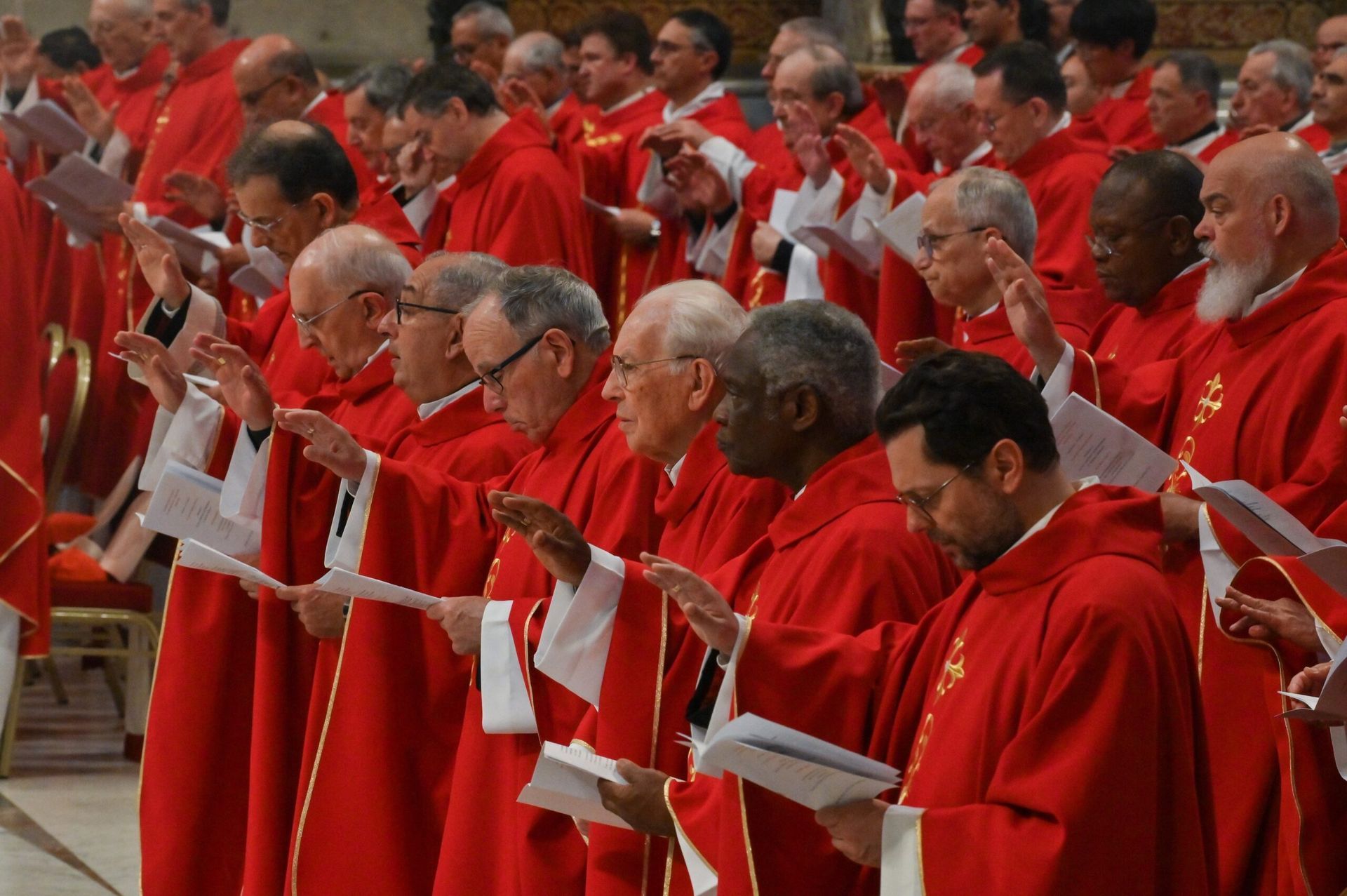
A POPE’S DEATH AND A POPE’S ELECTION – A TIME OF BLAZING LIGHT Looking at media coverage of Pope Francis’s funeral and the election of Pope Leo. The worldwide interest in the event in Rome in recent weeks has been astounding. Even our British BBC and SKY have had nearly 24-hour coverage. The main-stream papers have been full of it as well. That seems to me to be in sharp contrast to their default position of ignoring everything Catholic. It is as though being forced to take note of Francis’ death, they were suddenly drawn into a drama so stunning they could not ignore it. The more they publicised tributes to Francis, the more they were mesmerised by the Jesus shining out of the man, even though they may not be able to use those words. Being used to dismissing Catholic witness to Jesus as “absurd, meant for the weak and unintelligent”, preferring “other securities like technology, money, success power and pleasure” (quotes from Pope Leo’s first sermon), they were suddenly confronted by the vibrancy of the Church they had ignored with prejudice. They did not know it was Jesus shining through his people, but they were gob-smacked to witness a life-force which lit up a broken world rather than cast darknes. After that, they could not resist publicising it. The whole beauty of the setting - St Peters, its square, the sunshine, the many thousands of people there every day, the number of motivated people of all ages and nations, even the ancient ritual of black and white smoke were compulsive watching and publicising. The ceremonies in which elderly cardinals were wrapped in deep prayer exploring the God dimension before the eyes of the world, challenged the flat, uninspiring and drab world view they usually portray. To the surprise of the many, the firm trust that God is near and active among us was on full view. And there was wonder, which is the godmother of faith, at the seeming miracle of President Trump and President Zalinskyy reconciling in the immense splendour of St Peter's Basilica. The media’s mixed treatment There was a unusual exposure given to Catholic leaders and commentators, and much of their talk was shot through with genuine decency, restraint and cheerful faith. These were no crack-pots or weIrdos, but a refreshing change from the prophets of doom and the polarised commentators we get day after day. Without knowing it, they were putting on display “communion”, the Spirit’s gift which draws over a billion human beings into unity. What a contrast to the usual sensationalising of conflict! But they could not resist their need to accentuate opposing views in the Church which most of us are only mildly aware of, as though they were the main issues facing the Catholic Church. There was this tiresome talk of conservatives and liberals, traditionalist and progressives from the talking-heads. Yet when they went among the people in the square, they found joy and evident good-will. This was remarkably present even among the tears of Francis’ passing and funeral. It should not surprise us that they came with their controversy hats on. They know no better, but how tedious it was! The issue facing the Catholic Church is the same as always: how to be faithful friends and followers of Jesus. Not what political wing we may identify with, but how to be holy individuals and loving as a communion, so that the world meets Jesus and turns to him, who alone is the Way, the Truth and the Life. Straws in the wind On this website we seek to enhance Catholic Hope by stressing that God is preparing a new and glorious age of Christianity here in the West. It is in the West that our modern wonderful advances have been produced. Now, here God wants to produce a development of the human heart which more fully lets Jesus inspire us to use these abundant gifts for the good of all. Here, we frequently offer evidence of this new age dawning. Surely the witnesses to Jesus given over the past few weeks in Rome and around the world are signs of God’s urgent activity. France 2025 Another straw in the wind is the remarkable news that 10,384 adults and 7400 teenager s were received into the Church in France this Easter. There has been a 160% increase over the past decade. Read about it in this article from the American Catholic News Agency. ( link below)
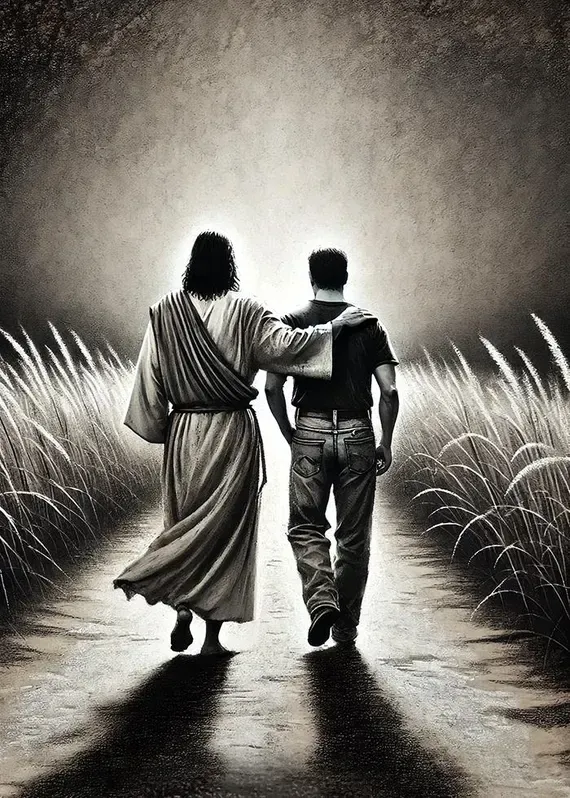
I wonder how many people you know watched some of the funeral of Pope Francis. I wonder how many were touched by his ability to empathise with everyone he met. It has been said that the Catholic Church is dying yet it is estimated 4000,00 people were in St Peter’s square for his Requiem Mass or lined the streets for his final funeral journey. Over 250 thousand people from all over the world queued for hours throughout the day or night to pay their last respects to a man that many had never met but somehow, they had encountered and been affected by him. Many hundreds of youth were present for the Jubilee of Youth and they stayed because they wanted to show their respect to a great man, Pope Francis. On the Saturday evening people gathered outside the Basilica of St. Mary Maggiore, the church of his final resting place. They hung around for a longtime as they wanted to be part of the recitation of the rosary but it was as though they could not bring themselves to leave. They wanted to be close to him. The media revelled in the idea that just before the funeral Mass was to begin, the meeting between Presidents Trump and Zelensky was engineered by the late Pope Francis bringing the possibility of peace closer. This maybe true, but it definitely shows people are looking for spiritual intervention in this world. People are fascinated and touched by the ability Pope Francis had to make them feel accepted whatever their faith situation. He was someone very special. Yet all he did was live out the Gospel values as we are asked to do. Yes, he was unusual as he was in charge of the faith practised by billions of people and he put his own stamp on the role of the pontiff. It was a more relaxed, welcoming, loving pontiff that we saw, who was very much in charge but who had time for everyone. At the same time, he was himself, George Bergoglio – the caring sympathetic personable man who everyone could identify with. Is this how we live out our faith? The last command of Jesus in Mathew 28:19 was ‘Go out and make disciples, baptise in the name of the Father, Son and Holy Spirit, and teach them all I have taught you.’ We need to look deeper into how to do this or maybe how to do this better. When we accompany people in the faith, we walk beside them and help them to encounter the faith or return to the faith. We can do simple things in our everyday life such as at the end of a conversation say ‘God bless’. I try to do this when I am speaking on the phone trying to solve utility difficulties or talking to someone at the bank – they are often taken aback and say thankyou which shows they are not just shaken by it, but they appreciate it. Sometimes they shakily reply ’oh yes and to you too’. When responding to a question from a hairdresser about what I do, I spoke about working for the Church and having a ministry helping adults to know their faith better. I then discovered she was a catholic and now always wants to talk about the Church. She probably cannot do this with any other client. We should not let our British reserve, or shyness prevent us from speaking about God. Sometimes we feel blocked by a lack of confidence in our knowledge of the faith. Are we happy just to stay in this rut or is there something we can do to help our faith knowledge increase? Is there someone you could speak to about this or any kind of reading you can do to help your faith foundation increase? We need to be aware that we need to grow deeper in knowing our faith with our heart, not just with our head. Anyone can read and just quote others, but the attraction to the faith and conversion of the heart are sparked by the passion seen in someone who believes and speaks from the heart. When someone turns up at Mass, they may be returning to the church after being away for a while or maybe they are a new comer. The last thing they need is an interrogation, but a simple ‘hello’, ‘how are you’, ‘great to see you’, at the church door to welcome them is much better and less oppressive. Once we have repeated this exercise for a while, maybe we could offer to sit with them in church. Many non-regular attenders who arrive at the church door are hesitant and do not need to be bombarded, they are often anxious and unsure of themselves and may feel too much is expected of them too soon. They often feel lost as they do not know or cannot remember the responses in Mass, but with someone standing beside them guiding them often helps them to relax. In today’s world where faith is not valued, we British are not only reluctant to share our faith with others, we are also reluctant to share the fact that we are on a journey constantly seeking to know more because it looks as if we do not know our faith well enough. On a recent trip to Spain several people from the church went for a coffee in a local coffee shop and all the talk was about things connected to the faith. This is partly because they come from a culture of faith, it is embedded in their DNA. Do we do this when we go for coffee after Mass or is our conversation about anything and everything except our relationship with Jesus and the Church? We often find this depth of faith in immigrants who come to our parishes. Many British, although they do their best, do not have a faith at such a depth that it penetrates all their being and everything their family does. Is there a way to make a breakthrough to enable sharing about Jesus, and our faith to be the norm in the groups we are part of. Recently one of the members of a group spoke about a relative being a sister in the church and the others in the group were fascinated. Questions were raised by this, such as ‘What made her want to do this?’ ‘How could she give up a family?’ But also, people were incredibly impressed and touched by the fact that this young woman could give up everything for God. This was a chance to speak about the importance of God in our life. People are seeking and want to know about this loving God but they are afraid to ask in case they are ridiculed, so we need to make the openings to enable them to ask questions. We need to remember to trust the Holy Spirit as he will give us the words we need to speak to the heart of others. No-one said it was easy but let us have confidence in God- He will provide all we need. We need to initiate others in the art of accompaniment within their own circles, including in their families. How many parents avoid the subject of religion with grown up sons and daughters in fear that an argument will follow and they will distance themselves from you. We need to pray, speak and trust that God will provide the opportunities to share our faith. He will provide the words we need to speak and open the ears of those we speak to. We cannot do this alone We need him. We cannot hide the fact that there are times when we will be attacked for what we say, we will be mocked and may sometimes feel a failure. However, we have a responsibility to spread the faith which includes laying down the seeds of truth. Then the Holy Spirit will develop the seed you planted within others, but you need to give him room to work within them. This is when prayer is so important, we plant the seed and step back and pray as the Holy Spirit moves in for his part in the process. The more we share, the more our confidence grows. The more we know our own faith, the more we can accompany others with a growing confidence. Pray for the Holy Spirit to lead you to situations in which to share your faith and ask him to give you the words others need to hear.

